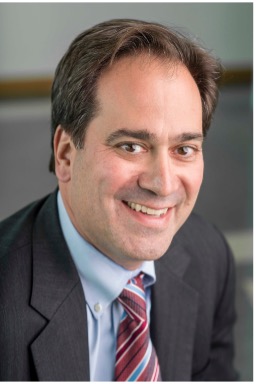Please join us for the March MIT.nano Seminar Series:
Chad A. Mirkin, PhD
 George B. Rathmann Professor of Chemistry
George B. Rathmann Professor of Chemistry
Director, International Institute for Nanotechnology
Northwestern University
Date: Monday, March 13, 2023
Time: 3:00 PM - 4:00 PM ET
Location: Grier Combined (34-401); or join via Zoom.
Reception to follow.
>>Register.
To receive event announcements, sign up for our email list.
Abstract
Throughout history, the materials we have used and relied on have evolved over time, slowly becoming more complex. The progression from the stone tools used by early man to the composite synthetic materials used today took centuries due to the massive parameter space that materials encompass. For instance, when one considers the 91 metal elements in the periodic table, and all possible combinations of them, a nearly infinite number of possible materials exist. This is particularly true at the nanoscale where small changes in size or shape, even at a fixed chemical composition, can dramatically change a material’s properties. Therefore, the ability to rapidly synthesize and subsequently screen materials for desired properties is needed.
We have developed a nanoscale scanning probe lithography approach that, through the deposition of polymeric nanoreactors and thermal annealing, enables the preparation of “megalibraries” of as many as five billion positionally encoded nanomaterials with distinct chemistries, including metallic or ionic nanoparticles and perovskites. These libraries can be tailored to encompass a wide variety of alloy and phase-separated nanoparticles that are comprised of as many as eight different elements with up to four phases and six interfaces. Importantly, one megalibrary contains more new, well-defined inorganic materials than chemists cumulatively have produced and characterized to date, and can be used to identify new materials and catalysts for important chemical transformations.
In addition, important insight into how thermodynamic phases form in polyelemental nanoparticles has been obtained, and design rules for engineering heterostructures in polyelemental nanoparticles have been established. We are now developing new high-throughput structure, catalysis, and luminescence characterization techniques that match the unprecedented speed of megalibrary synthesis. Together, this approach lays the foundation for creating an inflection point in the pace at which we both explore the breadth and discover the capabilities of the matterverse.
Biography
Chad Mirkin, PhD is the director of the International Institute for Nanotechnology and the Rathmann Professor of Chemistry, Chemical & Biological Engineering, Biomedical Engineering, Materials Science & Engineering, and Medicine at Northwestern University. He is a chemist and a world-renowned nanoscience expert who is known for his discovery and development of spherical nucleic acids (SNAs) and SNA-based biodetection and therapeutic schemes, Dip-Pen Nanolithography (DPN) and related cantilever-free nanopatterning and materials discovery methodologies, and contributions to supramolecular chemistry and nanoparticle synthesis.
Mirkin received his B.S. degree from Dickinson College (1986) and a Ph.D. degree from Pennsylvania State University (1989). He was an NSF Postdoctoral Fellow at MIT prior to becoming a professor at Northwestern in 1991. He has authored over 840 manuscripts and over 1,200 patent applications (over 400 issued) and founded ten companies.
Mirkin has been recognized with over 230 awards, including the Kabiller Prize in Nanoscience and Nanomedicine, SCI Perkin Medal, Dan David Prize, and NAS Sackler Prize in Convergence Research. He served on the President’s Council of Advisors on Science & Technology, and he is one of very few scientists to be elected to all three US National Academies. Mirkin was an Associate Editor of J. Am. Chem. Soc. and is a Proc. Natl. Acad. Sci. USA Editorial Board Member. He has given over 870 invited lectures and educated over 300 graduate students and postdoctoral fellows, of whom over 120 are now faculty members at top institutions around the world.
